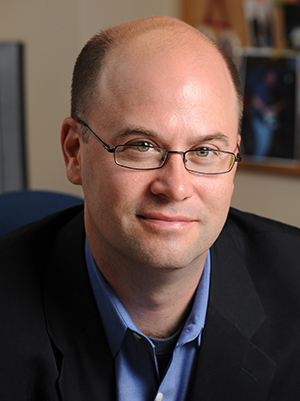 Richard Garnett
Richard Garnett
The Supreme Court of the United States (SCOTUS) on Thursday (June 18) handed down its decisions in Reed v. Town of Gilbert — that an Arizona town had violated the First Amendment by placing limits on the size of signs announcing church services — and in Walker v. Sons of Confederate Veterans, that the Texas Department of Motor Vehicles acted lawfully in rejecting a license plate displaying the Confederate flag.
According to University of Notre Dame law professor Richard W. Garnett, a former SCOTUS law clerk who teaches and writes about the First Amendment, “Thursday was a black-letter-law freedom of speech day at the Supreme Court.”
According to Garnett, the two decisions “re-affirmed and applied foundational and important principles of free-speech law. In Reed, the justices reminded us, once again, that government officials are only very rarely allowed to regulate speech because of, or with reference to, what’s being said. This rule has become the bedrock of modern First Amendment law and it is crucial for the freedom of speech. For example, governments can generally regulate the size and location of signs, and the volume of loudspeakers, and the time and route of a parade, but officials cannot base speech regulations on what the speakers are saying. This black-letter rule against ‘content-based’ regulation of speech helps prevent the government from distorting, shrinking or hijacking the marketplace of ideas.”
Garnett said that Justice Clarence Thomas’ opinion for the court “helpfully clarifies the doctrine by emphasizing that content-based regulations of speech are highly suspect whether or not those regulations are motivated by official disagreement with or disapproval of the speaker’s message. Justice Thomas wrote that ‘innocent motives do not eliminate the danger of censorship presented by a facially content-based statute, as future government officials may one day wield such statutes to suppress disfavored speech.’ In other words, the rule against content-based regulations provides important safeguards against even well-intentioned speech restrictions that, regardless of officials’ motives, can distort public debate and conversation.”
According to Garnett, in the sharply divided Walker v. Sons of Confederate Veterans decision, where the court narrowly ruled that such special license plate programs as Texas’ should be seen as government speech rather than as an open forum for private speech, “It is well settled that when the government speaks it gets to decide what to say. This rule makes sense. Our governments can choose to endorse democracy or forest-fire safety without giving equal time to monarchists or pyromaniacs.
“On the other hand,” Garnett continued, “it is also a basic, and important, rule that private speech — even on public property and even in the context of a so-called public forum — is protected and cannot be regulated on the basis of the speaker’s viewpoint. What divided the Court in Walker was not so much these basic rules, but their application. The justices split on the question whether the license-plate program should be regarded as a forum for private speech or as government speech. The danger, which Justice Alito and the dissenters emphasized, is that a ‘capacious understanding of government speech takes a large and painful bite out of the First Amendment.’ In today’s world, a great deal of important private expression takes place in public places, or in the context of publicly managed programs, or with the support of public funds. The dissenters are right to warn that expanding the idea of government speech to include private speech that is somehow publicly supported or facilitated puts free expression of unpopular ideas at risk."
Contact: Richard Garnett, (o) 574-631-6981, (m) 574-276-2252, rgarnett@nd.edu